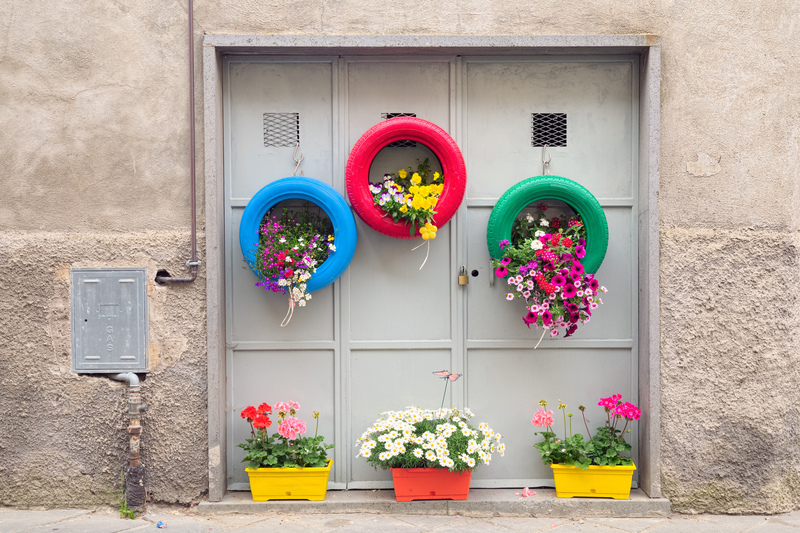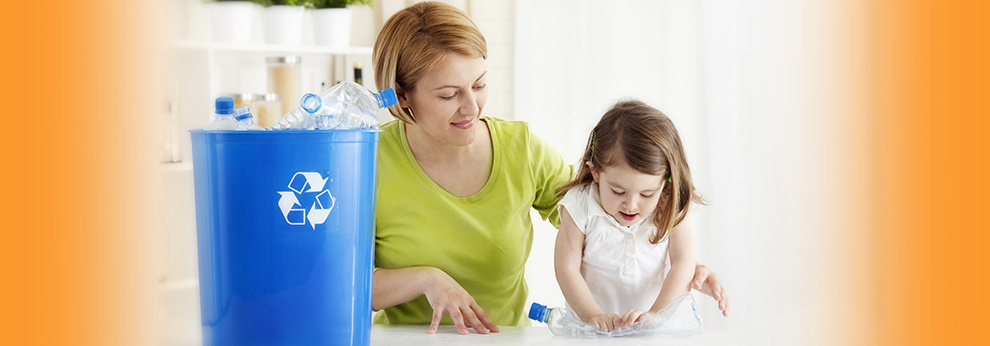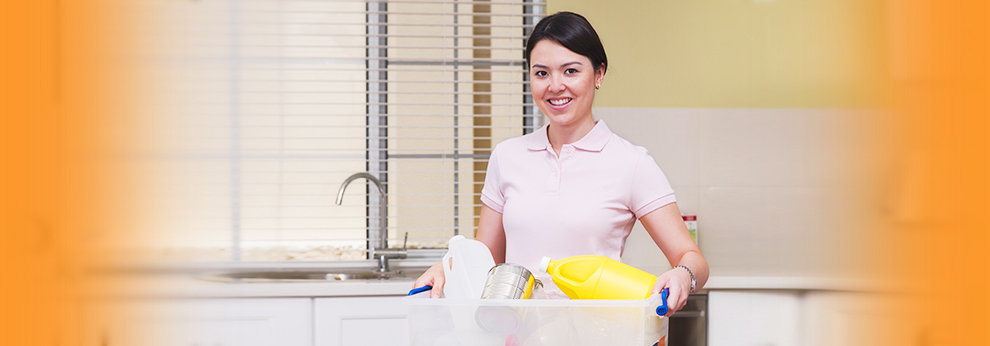Step-by-Step Guide to Disposing Pots and Pans Responsibly
Posted on 14/09/2025
Step-by-Step Guide to Disposing Pots and Pans Responsibly
Discarding old cookware might seem like a simple task, but responsibly disposing of pots and pans has a significant impact on the environment. Whether your pots and pans are damaged, nonstick, rusty, or you're just upgrading your cookware, it's vital to find sustainable ways to let them go. This step-by-step guide to disposing of pots and pans responsibly will walk you through the right methods, from recycling to donating and beyond.
Why Responsible Pot and Pan Disposal Matters
Pots and pans are made from materials such as aluminum, stainless steel, copper, and non-stick coatings, which can be harmful if not disposed of correctly. Dumping cookware irresponsibly in the trash may lead to environmental pollution and wastes resources that could be recycled, reused, or repurposed.
- Environmental Impact: Improper disposal increases landfill waste and can release harmful chemicals.
- Resource Conservation: Recycling helps recover valuable metals and reduces the demand for raw materials.
- Charity and Community Support: Donating usable cookware helps people in need and supports thrift stores.

Assessing Your Old Pots and Pans
Before deciding how to dispose of your pots and pans, evaluate their condition. This key step will help you choose the most responsible disposal method.
Check for Usability
Ask yourself:
- Are there chips, cracks, or significant rust?
- Is the nonstick coating peeling?
- Are handles or lids broken?
- Does the cookware still conduct heat properly?
If the cookware is still functional and safe, donating or selling may be the best choice. If they're beyond repair, read on for recycling and upcycling options.
Step 1: Donate Usable Cookware
Donation is an excellent first step in the responsible disposal of pots and pans. Many people, shelters, and thrift shops appreciate functional cookware.
Where to Donate Pots and Pans
- Local Thrift Stores: Goodwill, The Salvation Army, and local non-profits gladly accept usable kitchenware.
- Family Shelters and Soup Kitchens: These organizations often need cookware for their meal programs.
- Community Centers: Some host kitchen equipment drives for vulnerable populations.
- Online Freecycle Groups: Use Freecycle, Facebook Marketplace (for free listings), Craigslist, or Nextdoor.
Tips for Donating Cookware
- Clean pots and pans thoroughly before donation.
- Ensure handles and lids are intact and safe.
- Bundle cookware by type for easier sorting and distribution.
Step 2: Recycle Metal Pots and Pans
If your cookware is no longer usable, recycling is the eco-friendliest method of disposal. Most pots and pans are made from recyclable metals such as stainless steel, aluminum, or copper.
How to Recycle Old Pots and Pans
- Identify the Material:
- Most pans have a stamp or mark indicating metal type.
- Aluminum and stainless steel are most common; copper and cast iron are less frequent.
- Find a Scrap Metal Facility:
- Contact your local recycling center or scrap metal yard and inquire if they accept cookware.
- Use resources like Earth911 Recycling Locator for locations near you.
- Prepare the Cookware:
- Remove all non-metal parts, such as plastic handles, rubber grips, or glass lids.
- Check if the recycling center needs cookware separated by metal type.
- Transport and Drop-Off:
- Drop off cleaned and separated cookware at the facility during operating hours.
Can You Recycle Nonstick Pans?
Nonstick pans require extra caution, as the Teflon or ceramic coating isn't always accepted by every recycler. Contact your recycling center about their requirements. Often, you'll need to remove as much nonstick coating as possible or send to specialty recyclers who accept coated pans.
Step 3: Upcycle and Repurpose Old Cookware
Before throwing out an old pot or pan, consider upcycling it into something new and useful. Upcycling is a creative way to reduce waste and give new life to otherwise unwanted items.
Creative Upcycling Ideas
- Planters: Drill holes in the bottom and use them as decorative flower pots for your garden or balcony.
- Storage: Use large stockpots to store utensils, kitchen towels, or craft supplies.
- Bird Feeders or Baths: Hang pans on tree branches to attract birds.
- Wall Art: Paint cast iron skillets or lids for rustic kitchen decor.
- Candle Holders: Fill small pans with wax to make candles, using the handle as a convenient carrier.
- Wind Chimes: Hang lids and small pans together for unique wind chimes in your garden.
Upcycling not only keeps cookware out of landfills, but also adds unique, personal touches to your home or garden.
Step 4: Proper Disposal if All Else Fails
If your pots and pans can't be donated, recycled, or upcycled, as a last resort, dispose of them correctly in your local waste system.
Tips for Responsible Disposal
- Check Municipal Guidelines: Some communities have bulk item or metal collection days.
- Request Special Pickup: Arrange for large item pickup services if available in your area.
- Mark the Item: Indicate that the item is scrap or metal for proper sorting at the landfill.
Remember, landfill disposal should always be the last option when seeking responsible ways to dispose of old pots and pans.
Frequently Asked Questions about Disposing of Cookware
Can I Put Old Pots and Pans in the Recycling Bin?
Most local curbside recycling programs do not accept cookware due to size, coatings, or metal type compatibility. Instead, take them to a scrap metal recycling center for proper handling.
How Do I Dispose of a Non-Stick Pan?
Non-stick pans with intact coating need to go to specialty recycling sites. If the coating is heavily damaged, check with your local scrap metal facility. Never compost, burn, or crush nonstick cookware, as chemicals may be released.
Is It Okay to Throw Pots and Pans in the Trash?
It's not recommended, as cookware in landfills is a waste of resources and can cause environmental harm. Only resort to trash disposal if no other options are available.
Best Practices for Responsible Pot and Pan Disposal
- Always clean pots and pans before disposing, recycling, or donating.
- Ask recyclers about accepted types--coatings make a difference.
- Shelters and thrift stores are only interested in safe, usable items.
- Consider repurposing for craft projects or garden use.
- Keep up to date with community clean-up days or recycling drives.
How to Extend the Life of Your Cookware and Minimize Waste
- Choose high-quality pots and pans that are durable and long-lasting.
- Follow manufacturer care instructions to prevent warping, chipping, and rust.
- Avoid using metal utensils on nonstick surfaces to prevent flaking.
- Repair loose handles or lids where possible instead of replacing the whole item.

Conclusion: Do Your Part for the Planet
Disposing of old pots and pans in an environmentally conscious manner is a small step with a big impact. Recycling, donating, and upcycling are all effective ways to prevent waste, conserve resources, and even help others. With these step-by-step solutions, you can feel confident you're taking the best approach to disposing of pots and pans responsibly.
- Donate when the cookware is still usable.
- Recycle metal pots and pans at a reputable facility.
- Upcycle old pans into creative home or garden items.
- Dispose via landfill only when all other options are exhausted.
By choosing sustainable disposal methods for cookware, you play a pivotal role in protecting the environment and fostering a culture of responsibility and care.
Resources and Additional Reading
Embrace these practical, eco-friendly steps and spread the word: responsible pot and pan disposal makes a difference!



